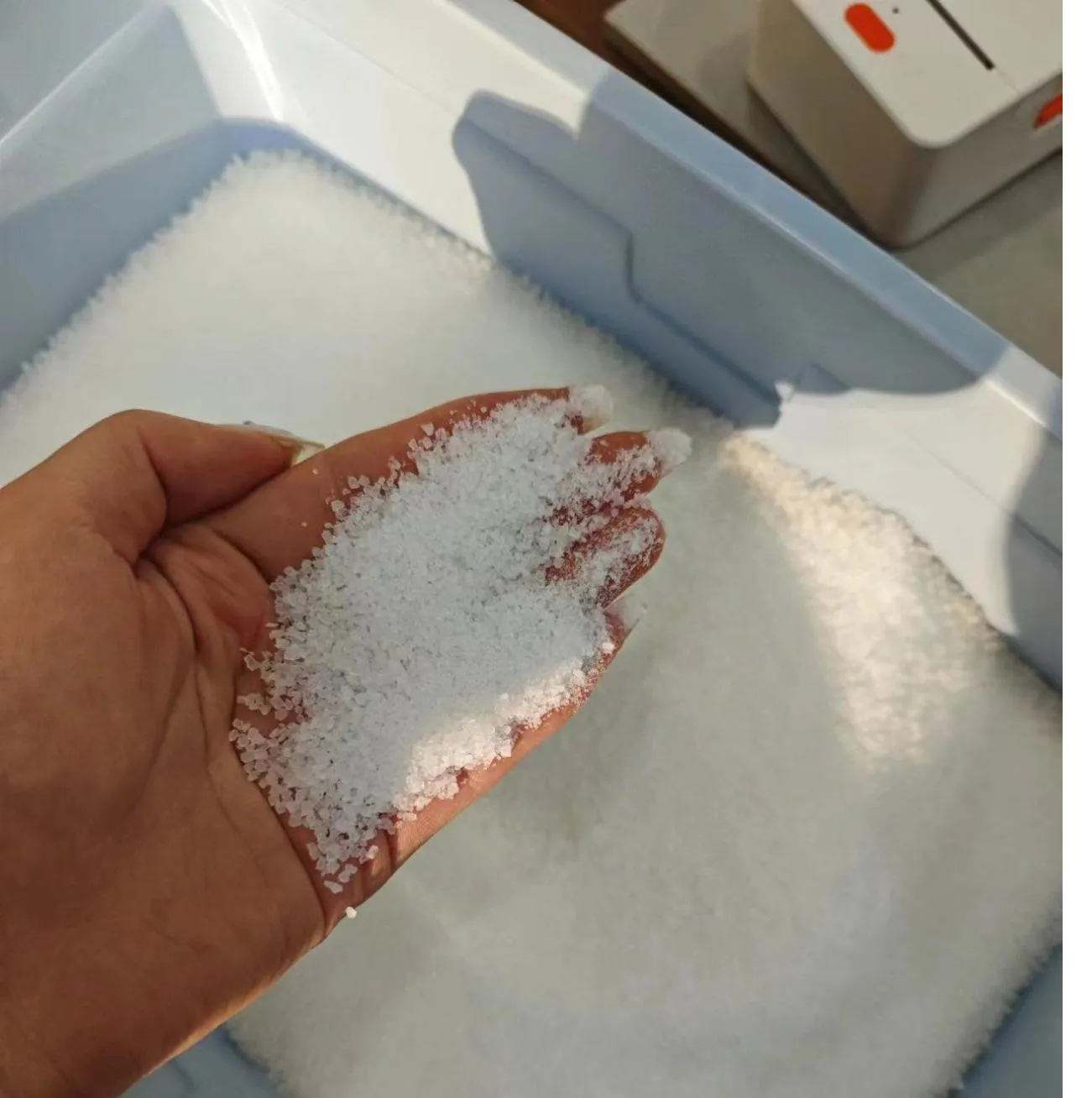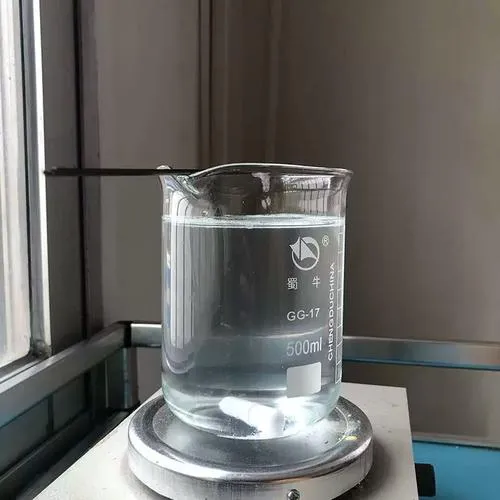
Exploring the Versatility of Polyvinyl Alcohol (PVA)
Polyvinyl alcohol (PVA) is a synthetic polymer widely used across various industries, especially in construction, packaging, cosmetics, textiles, and more. Available in forms like 폴리비닐알코올 분말 or powder PVA, this water-soluble polymer offers high performance for bonding, coating, and strengthening purposes. With a wide range of PVA types available, it’s important to understand their unique properties and practical applications.
One of the key features of PVA is its ability to dissolve in water. The solubility of polyvinyl alcohol in water depends on factors like its degree of polymerization and hydrolysis. High hydrolysis grades tend to dissolve in hot water, while partially hydrolyzed grades can dissolve in cold water. This makes PVA water soluble products highly adaptable, particularly for use in environmentally-friendly packaging and biodegradable materials.
PVA’s role in construction is also significant. It is commonly used as a bonding agent and primer for surfaces such as concrete and plaster. PVA for plastering and PVA for plastering walls improves adhesion between plaster and the substrate, prevents rapid moisture loss, and enhances the overall strength and durability of the finish. When mixed with sand and cement, PVA with sand helps create a flexible, crack-resistant surface, ideal for internal and external rendering.

Applications and Industry Insights: From Construction to Sponge Manufacturing
Apart from being an essential material in the construction field, PVA finds unique applications in other industries. For example, the PVA sponge manufacturer market uses polyvinyl alcohol to create soft, absorbent, and durable sponges. These sponges are widely used in healthcare, cleaning, and cosmetic industries due to their excellent water absorption and antibacterial properties.
Another important aspect to consider is the cost of PVA. The polyvinyl alcohol cost varies depending on the grade, production method, and order volume. Industrial clients looking for reliable polyvinyl alcohol suppliers must evaluate not just price, but also the consistency, purity, and supply capabilities of the vendor.
In more technical applications, specific grades like PVA 0588 are used. This grade offers good film-forming ability, high tensile strength, and excellent water solubility. It is widely used in adhesives, textile sizing, and paper coatings. Since PVA degrades into non-toxic byproducts, it is often preferred over non-biodegradable plastics. However, some still wonder, "Is polyvinyl alcohol a microplastic?" The answer is no. While it is a synthetic polymer, it is not classified as a microplastic because it is water-soluble and biodegradable under appropriate conditions.
As the demand for sustainable materials grows, polyviny alcohol (note: a common misspelling of polyvinyl alcohol) is becoming increasingly valuable due to its eco-friendly properties and versatility.

Choosing the Right PVA Type for Your Application
The different PVA types available are based on polymerization degree, degree of hydrolysis, and particle size. Selecting the right one depends on the intended application. For construction, partially hydrolyzed grades are typically used for mixing with cement or as primers for surfaces before plastering or painting. For industrial applications such as adhesives or film coatings, fully hydrolyzed types provide greater strength and resistance.
폴리비닐알코올 분말 is the most commonly supplied form, easily stored and mixed with water as needed. The powder PVA is also ideal for automatic batching systems in factories, improving workflow efficiency. Whether used in liquid or dry form, PVA must be handled according to manufacturer instructions, especially when considering the solubility of polyvinyl alcohol in water, which varies by type.
As concerns grow around pollution and sustainability, PVA’s biodegradable nature and lack of long-term microplastic impact are attracting more attention. Industries looking to balance performance with environmental responsibility should consider polyvinyl alcohol as a prime candidate for a variety of production processes.
Conclusion: PVA – A Smart, Sustainable Solution for Modern Industry
PVA continues to be one of the most adaptable and in-demand synthetic polymers on the market. Whether you're looking to improve plaster bonding in construction, develop biodegradable films, or create high-performance sponges, there’s a PVA type for your needs. With forms like 폴리비닐알코올 분말, grades like PVA 0588, and solutions for both PVA with sand and water-based systems, it serves as a reliable and sustainable choice across industries.
Choosing the right polyvinyl alcohol suppliers, understanding the polyvinyl alcohol cost, and assessing the solubility of polyvinyl alcohol in water are critical to maximizing its benefits. As environmental standards evolve, PVA stands out not only for its effectiveness but also for its eco-conscious credentials.
FAQ Section: Frequently Asked Questions About PVA Types and Uses
What are the different types of PVA available for industrial use?
PVA typesvary based on their degree of hydrolysis and polymerization. Fully hydrolyzed PVA offers better strength and resistance, ideal for industrial adhesives. Partially hydrolyzed forms dissolve in cold water and are used in construction applications like PVA for plastering.
Is polyvinyl alcohol a microplastic?
No, polyvinyl alcohol is not a microplastic. Despite being a synthetic polymer, it is water-soluble and biodegradable under suitable conditions, making it a safer alternative for the environment.
What is the solubility of polyvinyl alcohol in water?
The solubility of polyvinyl alcohol in waterdepends on its grade. Partially hydrolyzed PVA can dissolve in cold water, while fully hydrolyzed types require hot water. Proper mixing ensures full dissolution and effectiveness in applications.
What is PVA 0588 used for?
PVA 0588is a versatile grade known for its high tensile strength, good film-forming ability, and excellent solubility. It is commonly used in paper coatings, adhesives, and as a textile sizing agent.
Where can I find reliable polyvinyl alcohol suppliers?
Reputable polyvinyl alcohol supplierscan be found globally, offering various grades including 폴리비닐알코올 분말. When sourcing, consider factors like purity, polyvinyl alcohol cost, and delivery capabilities for bulk orders.
-
Hydroxypropyl Starch as a Sustainable Construction Additive소식Nov.24,2025
-
The Gelation Properties of CMC소식Nov.21,2025
-
Redispersible Latex Powder and Water Retention Capacity소식Nov.21,2025
-
Dosage Control for Polycarboxylate Water Reducer소식Nov.21,2025
-
Film-Forming Properties of Polyvinyl Alcohol소식Nov.21,2025
-
The Function of Gypsum Additives in Mortar소식Nov.21,2025





















